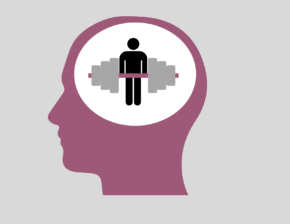Earlier this year I wrote an article about Resilience at Work. This was several months before the true impact of Covid-19 was felt in the UK. Since then people and organisations have been on a bumpy rollercoaster ride of twists and turns, navigating what is frequently being referred to as a VUCA world – a military acronym standing for volatile, uncertain, complex and ambiguous.
As we approach the latter part of 2020, my HR work with local businesses has caused me to reflect on organisational resilience and how an organisation’s ability to bounce-back from adversity will play an increasingly important role in determining which enterprises prosper in 2021 and beyond.
Cornelius Holtorf, an archaeology professor at Linnaeus University in Sweden, described cultural resilience as the capability of a cultural system “to absorb adversity, deal with change and continue to develop”.
But how do you go about creating a resilience culture in your organisation?
I’m afraid there are no quick fixes, as organisational resilience relies on lots of strong internal and external interconnections, good communications, as well as co-operation.
However, I have put together the following questions to help highlight areas you might need to bolster or strengthen, to develop the right kind of resilience:
Resilience Culture: Strong Communications
- Do you personally engage with your employees, workers and customers? If so, how?
- What communications do you use to create open conversations about ethics and values?
- Do you encourage all members of your workforce to speak up and ask questions? If so, how often?
- Have you shared bad news openly with your people and reported early warning signs of potential problems? If so, give some examples
- Have you shared good news openly with your people and reported positive customer feedback and endorsements? If so, give some examples
Resilience Culture: Strong Emotional and Social Support
- How have you been managing your own mental and physical health and wellbeing this year?
- What have you been doing to build a more social, but safe working environment?
- How have you supported the mental and physical health and wellbeing of your workforce?
- Have you explored the importance of emotional intelligence in enabling people to cope with change and uncertainty?
- What do you do to ensure your workforce has time to relax, unwind and recuperate?
Resilience Culture: Strong Development and Growth
- What are you doing to develop a more diverse and inclusive workplace?
- What changes have you made to provide greater work flexibility and adaptability?
- How have you encouraged more collaboration, teamwork and creativity within your workforce?
- After completing a work challenge or implementing a significant change, do you thank everyone for their input and discuss outcomes and/or learning points?
- Have you sought out expertise when needing further support or input? If so, what have you accessed?
Remember that resilience is not established with a single initiative but needs to be developed as part of a wider-reaching, blended programme. My hope is that these questions will help you move in the right direction, enabling you to weather the current and future business and employment challenges that lie ahead.
Best of luck
K
Further Reading:
Resilience is not a Luxury: It is Critical to our Survival (18th March 2020)
Emotional Intelligence can Improve Resilience by Carla Shuman (24th Aug 2020)
And … if you want to work towards an ISO standard, yes, there is one for resilience called: ISO 22316: 2017 Security and Resilience – it focuses in on 9 attributes associated with a resilient organisation.


